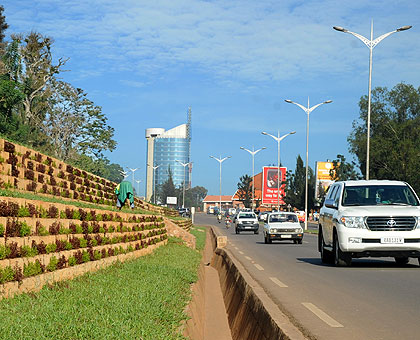National
The tale of Kigali beautification
People visiting Kigali have always got a first impression of, “Kigali the cleanest and safest city in Africa.”

A clean and fast growing city of Kigali. The New Times / File.
